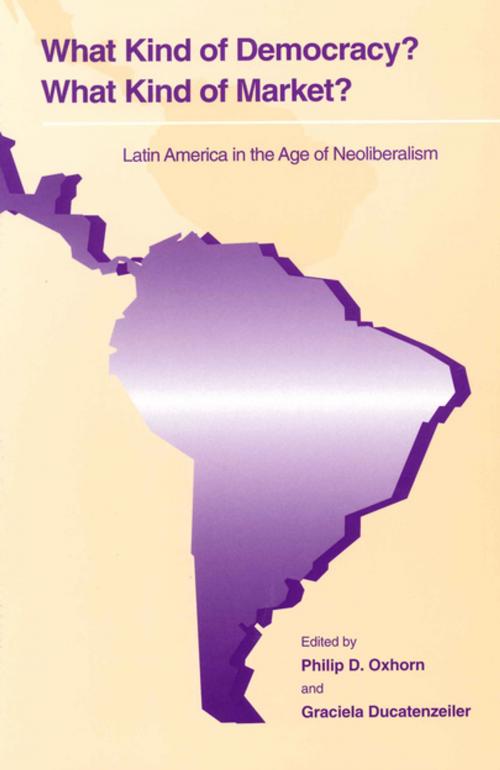What Kind of Democracy? What Kind of Market?
Latin America in the Age of Neoliberalism
Nonfiction, Social & Cultural Studies, Political Science, Politics, Economic Conditions, Government, Public Policy, Religion & Spirituality, Philosophy, Political| Author: | ISBN: | 9780271042565 | |
| Publisher: | Penn State University Press | Publication: | December 31, 1998 |
| Imprint: | Penn State University Press | Language: | English |
| Author: | |
| ISBN: | 9780271042565 |
| Publisher: | Penn State University Press |
| Publication: | December 31, 1998 |
| Imprint: | Penn State University Press |
| Language: | English |
While there is much literature analyzing the politics of implementing economic reforms, very little has been written on the social and political consequences of such reforms after they have been implemented. The basic premise of this book is that the convergence of many social, economic, and political ills (such as high levels of poverty, income inequality, criminal violence, and the growth of the informal sector) in the context of unprecedented levels of political democratization in Latin America presents a paradox that needs to be explained. What Kind of Democracy? demonstrates how the myriad social problems throughout the region are intimately linked both to a new economic development model and the weaknesses of Latin American democracy.
This volume brings together prominent scholars from Canada, the United States, and Latin America, representing several different disciplines to analyze ongoing processes of economic, social, and political change in the region. The contributors are Werner Baer, Manuel Barrera, Juan Alberto Fuentes, Yoshiaki Nakano, Claudio Paiva, Luiz Carlos Bresser Pereira, Jean-François Prud'homme, Jorge Schvarzer, Francisco Weffort, and Francisco Zapata.
While there is much literature analyzing the politics of implementing economic reforms, very little has been written on the social and political consequences of such reforms after they have been implemented. The basic premise of this book is that the convergence of many social, economic, and political ills (such as high levels of poverty, income inequality, criminal violence, and the growth of the informal sector) in the context of unprecedented levels of political democratization in Latin America presents a paradox that needs to be explained. What Kind of Democracy? demonstrates how the myriad social problems throughout the region are intimately linked both to a new economic development model and the weaknesses of Latin American democracy.
This volume brings together prominent scholars from Canada, the United States, and Latin America, representing several different disciplines to analyze ongoing processes of economic, social, and political change in the region. The contributors are Werner Baer, Manuel Barrera, Juan Alberto Fuentes, Yoshiaki Nakano, Claudio Paiva, Luiz Carlos Bresser Pereira, Jean-François Prud'homme, Jorge Schvarzer, Francisco Weffort, and Francisco Zapata.















